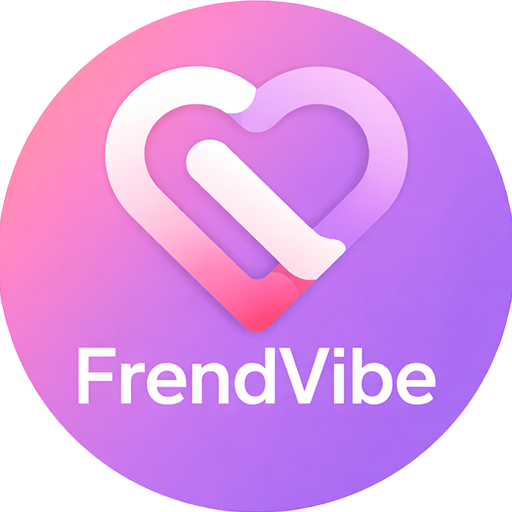Chatbot Market Size, Share, Trends, Key Drivers, Demand and Opportunity Analysis
"Executive Summary Chatbot Market Size and Share Forecast
The global chatbot market size was valued at USD 6.52 billion in 2024 and is expected to reach USD 32.20 billion by 2032, at a CAGR of 22.10% during the forecast period. This growth is driven by factors such as increasing demand for 24/7 customer support, advancements in AI and NLP, and the need to reduce operational costs through automation
Chatbot Market business report is a well-generated market report which helps achieve comprehensive analysis of the market structure along with estimations of the various segments and sub-segments of the market. This report deals with plentiful aspects of the Chatbot Market industry. The CAGR values covered here estimates the fluctuation about the rise or fall of demand for the specific forecasted period with respect to investment. A comprehensive market study and analysis of trends in consumer and supply chain dynamics underlined in this report assists businesses in drawing the strategies about sales, Market, advertising, and promotion.
While preparing a wonderful Chatbot Market report, combination of best industry insight, practical solutions, talent solutions and latest technology have been utilized. Market segmentation emphasizes on the product consumption based on several factors that includes but are not limited to type, application, deployment model, end user and geographical region. Market drivers and market restraints evaluated here brings into light how the product is getting utilized in the recent period while giving estimations about the future usage. Use of well-known statistical tools and coherent models for analysis and forecasting of market data makes an international Chatbot Market report outperforming.
Gain clarity on industry shifts, growth areas, and forecasts in our Chatbot Market report. Get your copy:
https://www.databridgemarketresearch.com/reports/global-chatbots-market
Chatbot Market Review
Segments
- By Component: The chatbot market can be segmented based on components into solutions and services. Chatbot solutions include software platforms and tools that enable the development and deployment of chatbots, while chatbot services include professional services such as consulting, training, and maintenance.
- By Deployment Mode: The market can also be segmented based on deployment mode into cloud-based and on-premises chatbots. Cloud-based chatbots offer scalability and flexibility, making them popular among businesses looking to quickly deploy chatbot solutions. On the other hand, on-premises chatbots provide more control and customization options for companies with specific security or compliance requirements.
- By Organization Size: Another key segmentation of the global chatbot market is based on organization size, categorizing companies into small and medium-sized enterprises (SMEs) and large enterprises. SMEs often opt for cloud-based chatbot solutions due to lower upfront costs and easier scalability, while large enterprises may prefer on-premises solutions that offer more customization and integration options.
- By End-User: The chatbot market can further be segmented based on end-users into various sectors such as healthcare, retail, BFSI, travel and hospitality, and others. Each industry has unique requirements for chatbot applications, such as customer service automation in retail or patient engagement in healthcare, driving the adoption of chatbots across different verticals.
Market Players
- IBM Corporation: A leading player in the chatbot market, IBM offers Watson Assistant, a powerful AI-powered chatbot platform that enables businesses to create conversational agents for various use cases such as customer support, sales, and IT helpdesk.
- Google LLC: Google's Dialogflow platform is a popular choice for businesses looking to build AI chatbots with natural language processing capabilities. Dialogflow integrates with Google Cloud services and provides advanced tools for creating chatbot interactions.
- Microsoft Corporation: Microsoft's Azure Bot Service is a comprehensive chatbot development platform that leverages AI and machine learning to create intelligent conversational agents. Azure Bot Service integrates with Microsoft's ecosystem of products and services for seamless integration.
- Amazon Web Services, Inc.: Amazon Lex is a chatbot platform built on AWS that enables developers to build conversational interfaces for applications using voice and text. Amazon Lex provides advanced AI capabilities for natural language understanding and speech recognition.
- Facebook, Inc.: Facebook's Messenger platform offers chatbot development tools for businesses to create automated messaging experiences for their customers. With a large user base, Messenger chatbots are popular for customer service, marketing, and e-commerce applications.
The global chatbot market is a dynamic and rapidly evolving sector driven by the increasing demand for conversational AI solutions across industries. Key players in the market are investing heavily in research and development to enhance the capabilities of chatbot platforms and expand their market presence. With the growing adoption of chatbots for improving customer engagement, driving operational efficiency, and reducing costs, the market is expected to witness substantial growth in the coming years.
The global chatbot market is poised for significant growth in the coming years as businesses increasingly recognize the value of conversational AI solutions in enhancing customer experiences and streamlining operations. One emerging trend in the market is the integration of chatbots with other emerging technologies such as machine learning, natural language processing, and voice recognition to create more advanced and intelligent chatbot solutions. This trend is driven by the need for chatbots to understand and respond to user queries more accurately and efficiently, leading to improved customer satisfaction and operational efficiency.
Another key factor influencing the chatbot market is the rise of omnichannel customer engagement strategies, where businesses are looking to provide consistent and seamless experiences across various communication channels, including websites, mobile apps, social media, and messaging platforms. Chatbots play a crucial role in enabling omnichannel interactions by providing 24/7 support, personalized recommendations, and instant responses to customer queries, regardless of the platform used. This shift towards omnichannel engagement is driving the adoption of chatbots across industries to improve customer engagement and drive sales growth.
Moreover, the increasing focus on automation and self-service solutions is driving the demand for chatbots in customer service, sales, and marketing functions. Businesses are leveraging chatbots to automate routine tasks, handle frequently asked questions, and provide real-time assistance to customers, thereby reducing operational costs and improving efficiency. Chatbots are also being used to drive sales and marketing initiatives by providing personalized product recommendations, facilitating transactions, and delivering targeted marketing messages to customers based on their preferences and behavior.
Furthermore, the growing preference for self-service options among consumers is fueling the adoption of chatbots in various industries such as retail, banking, healthcare, and travel. Chatbots enable customers to quickly find information, make reservations, schedule appointments, and resolve issues without the need for human intervention, leading to faster response times and higher customer satisfaction levels. The ability of chatbots to learn from user interactions and provide more personalized and relevant responses over time is driving their integration into various business processes to improve efficiency and customer engagement.
In conclusion, the global chatbot market is witnessing rapid growth and innovation driven by the increasing demand for conversational AI solutions across industries. Businesses are leveraging chatbots to enhance customer experiences, drive operational efficiency, and gain a competitive edge in the market. As technology continues to advance and customer expectations evolve, the role of chatbots in enabling seamless and personalized interactions is expected to become even more crucial, shaping the future of customer engagement and business operations.The global chatbot market is experiencing significant growth and innovation as businesses across various industries recognize the value of conversational AI solutions in improving customer experiences and operational efficiency. One notable trend shaping the market is the integration of chatbots with emerging technologies such as machine learning, natural language processing, and voice recognition. This integration enables chatbots to understand and respond to user queries more accurately and efficiently, ultimately enhancing customer satisfaction and operational effectiveness.
Another key driver of the chatbot market is the shift towards omnichannel customer engagement strategies. Businesses are increasingly looking to provide consistent and seamless experiences across multiple communication channels, including websites, mobile apps, social media, and messaging platforms. Chatbots play a pivotal role in enabling omnichannel interactions by offering round-the-clock support, personalized recommendations, and instant responses to customer inquiries, irrespective of the channel used. This emphasis on omnichannel engagement is fueling the adoption of chatbots across industries to boost customer engagement and drive sales growth.
Furthermore, the rising focus on automation and self-service solutions is amplifying the demand for chatbots in customer service, sales, and marketing functions. Chatbots are being leveraged to automate routine tasks, address frequently asked questions, and provide real-time assistance to customers, leading to cost savings and operational efficiencies. Additionally, chatbots are aiding sales and marketing efforts by offering personalized product suggestions, enabling transactions, and delivering targeted marketing messages based on customer preferences and behavior.
Moreover, the preference for self-service options among consumers is propelling the adoption of chatbots in industries like retail, banking, healthcare, and travel. Chatbots empower customers to swiftly access information, make reservations, schedule appointments, and resolve issues independently, resulting in quicker response times and enhanced customer satisfaction. The ability of chatbots to learn from user interactions and offer personalized and relevant responses over time is driving their integration into diverse business processes to enhance efficiency and customer engagement.
In conclusion, the chatbot market is evolving dynamically, driven by the increasing demand for conversational AI solutions and the shifting landscape of customer engagement strategies. Businesses are leveraging chatbots to elevate customer experiences, streamline operations, and gain a competitive advantage. As technology continues to advance and customer expectations evolve, chatbots are poised to play a pivotal role in facilitating personalized interactions and shaping the future of customer engagement and business operations.
Uncover the company’s portion of market ownership
https://www.databridgemarketresearch.com/reports/global-chatbots-market/companies
Structured Market Research Questions for Chatbot Market
- What is the current market size estimate of the Chatbot Market sector?
- What CAGR is projected over the forecast timeline?
- What segment types are discussed in the Chatbot Market report?
- Who are the strategic players in this Chatbot Market?
- What notable product updates have been launched recently?
- What countries are mapped in the regional analysis for Chatbot Market?
- What zone is undergoing the quickest transformation?
- Which country is expected to capture a dominant share?
- Which region has the widest reach and influence?
- Which country is set to register top CAGR figures for Chatbot Market?
Browse More Reports:
Global Urinary Incontinence Market
Global Plastic Waste Management Market
Global Surgical Meshes Market
Global Cannabidiol (CBD) Oil Market
Global Cobalt Market
Global Dental Equipment Market
Global Electroporation Instruments Market
Global Gaskets and Seals Market
Global Printing Inks Market
Global Aquaculture Vaccines Market
Global Catalyst Market
Global Door Entry Systems Market
Global Hospital Furniture Market
Global Meat and Poultry Processing Market
Global Clinical Chemistry Market
About Data Bridge Market Research:
An absolute way to forecast what the future holds is to comprehend the trend today!
Data Bridge Market Research set forth itself as an unconventional and neoteric market research and consulting firm with an unparalleled level of resilience and integrated approaches. We are determined to unearth the best market opportunities and foster efficient information for your business to thrive in the market. Data Bridge endeavors to provide appropriate solutions to the complex business challenges and initiates an effortless decision-making process. Data Bridge is an aftermath of sheer wisdom and experience which was formulated and framed in the year 2015 in Pune.
Contact Us:
Data Bridge Market Research
US: +1 614 591 3140
UK: +44 845 154 9652
APAC : +653 1251 975
Email:- corporatesales@databridgemarketresearch.com
"
- Art
- Causes
- Crafts
- Dance
- Drinks
- Film
- Fitness
- Food
- الألعاب
- Gardening
- Health
- الرئيسية
- Literature
- Music
- Networking
- أخرى
- Party
- Religion
- Shopping
- Sports
- Theater
- Wellness



